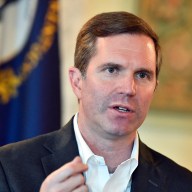 Facing tough job prospects, many students are shying away from humanities and opting for fields with more possibilities.
Facing tough job prospects, many students are shying away from humanities and opting for fields with more possibilities.
Fuse
The term “humanities” covers a broad spectrum of topics covered in college — from literature to music and philosophy — and that’s sort of the point. Humanities is an inclusive idea that refers to many fields of study and is revered for providing a broad spectrum of learning to students. A recent report from the American Academy of Arts and Sciences titled “The Heart of the Matter” says that students are opting out of pursuing the humanities in college. As college tuitions go up and students look at a tough job market, the study suggests they are taking classes with a firmer guarantee of jobs after graduation.
“The Heart of the Matter” attempts to further the conversation about the importance of humanities. The report “calls on parents, teachers, scholars, the media and the public at-large to join a cohesive and constructive national discussion of these issues.” We spoke with several academics in an attempt to do just that.
Steven G. Brint, vice provost for undergraduate education and professor of sociology at the University of California, Riverside, has been watching academic disciplines rise and fall for years. “The fields that students study in colleges and universities are far from stable over time. Instead, new fields come into being and some fall into obscurity,” says Brint. Though some may put the humanities into the “obscurity” category, Brint sees hope. “I am confident that those who have a feeling for the humanities will find a way to continue to appreciate them. These fields are not on the verge of going extinct,” he says.
Dr. Jana Mohr Lone is the director at University of Washington’s Northwest Center for Philosophy for Children. The program she introduces philosophy to K-12 students. “Engaging in philosophical exploration encourages children to think abstractly and deeply about themselves and their experiences, and helps them develop confidence in their own ideas and questions, as well as strong critical and creative thinking skills,” she says.
Lone also has hope for the humanities. “I believe that if we can tap into the natural interest children have in exploring some of the central questions at the heart of the humanities, children will grow up with an enduring passion for ideas and a commitment to furthering their imaginative thinking about these questions.”
















